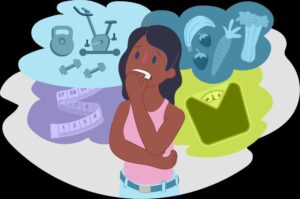Online Therapy Services: Are They Effective?
In recent years, the landscape of mental health care has undergone a significant transformation. With the advent of digital technology and the widespread adoption of smartphones and internet connectivity, online therapy services—also known as teletherapy or e-therapy—have surged in popularity. Especially in the context of the COVID-19 pandemic, which restricted in-person interactions, many individuals turned to online platforms for mental health support. But the question remains: Are online therapy services as effective as traditional face-to-face therapy?
The Rise of Online Therapy
Online therapy offers a range of services, including video calls, phone sessions, text-based chat, and even app-based interventions. Platforms like Better Help, Talk space, and local NHS digital services have made mental health support more accessible than ever before. For many, online therapy reduces barriers such as geographical distance, transportation issues, and the stigma often associated with visiting a mental health clinic.
Advantages of Online Therapy
- Accessibility and Convenience: Patients can schedule sessions at times that suit them, often outside of traditional office hours. This flexibility makes it easier for busy professionals, students, or those with mobility challenges to seek help.
- Anonymity and Privacy: For some individuals, the perceived anonymity of online services can lower barriers to initiating therapy, especially for those concerned about stigma.
- Cost-Effectiveness: Online therapy can sometimes be more affordable, reducing costs associated with travel and time off work.
- Wide Range of Options: Patients can choose therapists based on specialties, languages, and approaches, sometimes accessing experts not available locally.
Are Online Therapies as Effective as In-Person Sessions?
Research indicates that online therapy can be just as effective as traditional face-to-face treatment for many mental health conditions, including depression, anxiety, and PTSD. A 2018 meta-analysis published in the Journal of Affective Disorders found that internet-based cognitive-behavioral therapy (CBT) produces outcomes comparable to in-person CBT.
Furthermore, studies highlight that the therapeutic alliance—the collaborative bond between therapist and patient—is crucial for treatment success. While some worry that online interactions lack this personal touch, evidence suggests that a strong therapeutic alliance can be established through digital means.
Limitations and Considerations
Despite promising evidence, online therapy might not be suitable for everyone. Some limitations include:
– Severe Mental Health Conditions: Individuals experiencing psychosis, suicidal ideation, or severe depression may require more intensive, in-person interventions.
– Technical Issues: Reliable internet access and privacy at home are necessary. Disruptions or lack of privacy can hinder sessions.
– Therapist-Patient Compatibility: Some individuals may find it harder to connect emotionally through a screen or prefer in-person cues.
– Regulatory and Quality Concerns: Not all online platforms are regulated to the same standards. It’s essential to use services accredited by relevant bodies, such as the UK’s BACP or UKCP.
Ensuring Effectiveness and Safety
To maximize benefits from online therapy, consider these tips:
– Verify the credentials of your therapist and ensure the platform complies with data protection laws like GDPR.
– Choose a private, quiet space for sessions to maintain confidentiality.
– Be honest and open with your therapist, just as you would in person.
– Communicate your preferences and concerns about the format.
The Future of Online Therapy
The integration of technology into mental health care is likely to continue expanding. Innovations like AI-driven mental health apps, virtual reality exposure therapy, and machine learning algorithms for personalized treatment hold promise for enhancing the efficacy of digital mental health services.
In conclusion, online therapy services are a valuable addition to the mental health care toolkit, offering accessible, flexible, and effective support for many individuals. While they may not replace traditional therapy entirely, they serve as a crucial resource—especially for those facing barriers to in-person treatment. As with any healthcare decision, evaluating your specific needs and consulting with mental health professionals can help determine the best approach for you.
Prof. Ahmed EL Missiry
Addresses
– 146 SPACES, 17 City North Place, Finsbury Park, London N4 3FU
– Nightingale Consulating Rooms, 11-19 Lisson Grove, Marylebone, London NWI 6SH
Contact Numbers
WhatsApp
– +44 7452 355225
– +44 7418 465495
Phones
– +44 (0)20 7535 7700
– +44 (0)80 0970 8017




